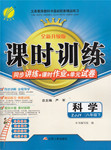题目内容
In February of 2005, Phil Belfiore was teaching one of Robert Frost’s poems “Stopping by Woods on a Snowy Evening”. He liked it so much that he recorded it on his home answering machine, which would later lead to one of the most unusual __________ of his life.
When Phil returned from his vacation, he listened to his voice __________. One gentleman caller __________ for dialing the wrong number. But, he added, he’d really__________ the poem. Phil laughed and thought nothing more of it-__________the phone rang a few days later.
Phil __________ John’s hollow voice immediately, who said sorry to __________, but he was calling to hear the __________ again. The two men talked. It turned out that his brother’s phone number was __________ from Phil’s by one digit. Before hanging up, Phil told John to __________ anytime, whether to hear the poem or just to have a chat.
That was 11 years ago. They’ve spoken on the phone a few times a month ever since. It is John who is __________ the starter of most calls. However, Phil will ring if a long while has passed. Not _________, John has been in poor health. His special voice is just the _________ of some heart trouble. They seem to always __________ when there’s been a big sports event and they like to
discuss __________ in particular. John will also __________ Phil on his life. Slowly, their conversations have grown much more __________. When asked what drew them together, Phil _________ that it was the telephone. They planned to meet twice, but circumstances went _________ them. Their friendship is based on the simple act of picking up the phone. “My best friend is someone I’ve not yet met __________,” says John.
1.A. receptions B. considerations C. conversations D. friendships
2.A. news B. messages C. information D. reports
3.A. apologized B. complained C. greeted D. asked
4.A. preferred B. noticed C. enjoyed D. heard
5.A. while B. since C. at D. until
6.A. heard B. knew C. answered D. recognized
7.A. phone[ B. bother C. come D. express
8.A. voice B. song C. poem D. ring
9.A. bad B. different C. silent D. far
10.A. call back B. call off C. call on D. call for
11.A. still B. even C. ever D. never
12.A. angrily B. surprisingly C. excitedly D. proudly
13.A. indication B. pronunciation C. attention D. description
14.A. arrive B. get C. communicate D. come
15.A. changes B. friends C. relatives D. football
16.A. teach B. update C. visit D. inform
17.A. formal B. special C. unusual D. personal
18.A. said B. predicted C. decided D. announced
19.A. with B. for C. against D. on
20.A. by accident B. on business C. in person D. for convenience
 课时训练江苏人民出版社系列答案
课时训练江苏人民出版社系列答案 黄冈经典趣味课堂系列答案
黄冈经典趣味课堂系列答案
